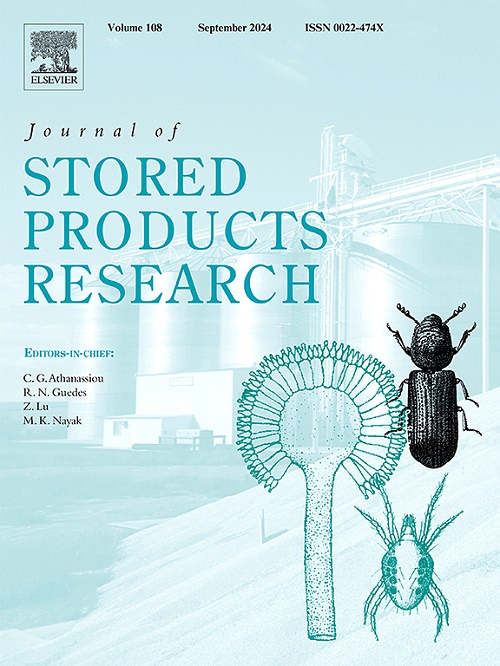Optimizing fermentation condition and shelf life study of black wheat rawa idli using artificial neural network-enhanced response surface methodology
IF 2.7
2区 农林科学
Q1 ENTOMOLOGY
引用次数: 0
Abstract
Black wheat, a nutrient-rich and underutilized pigmented wheat variety, offers significant health benefits when incorporated into plant-based foods. This study aimed to optimize the fermentation parameters for black wheat rawa idli (BWI) over a period of 2–6 h temperatures ranging from 20 to 45 °C. Key parameters, including batter volume, pH, titratable acidity, and density, were evaluated. Multi-objective optimization was performed using response surface methodology (RSM) and an artificial neural network coupled (ANN). The ANN demonstrated superior prediction accuracy (R2 = 0.98, MSE = 0.11) compared to RSM (R2 = 0.93, MSE = 0.31). Optimal fermentation conditions were identified as 32.5 °C for 4 h with 1.37 % inoculation. Scanning electron microscopy revealed a loss of structural integrity in starch granules, improved texture and enhanced antioxidant potential. The shelf life of the BWI mix stored at 25 °C in low-density polyethylene packaging was 75 days without nitrogen flushing and extended to 120 days with nitrogen flushing. These findings indicate that BWI possesses enhanced functional qualities, making it a promising and healthier dietary option. The optimization of fermentation parameters and shelf-life assessment provides valuable insights for the development of the healthier alternative to traditional rawa idli.

求助全文
约1分钟内获得全文
求助全文
来源期刊
CiteScore
5.70
自引率
18.50%
发文量
112
审稿时长
45 days
期刊介绍:
The Journal of Stored Products Research provides an international medium for the publication of both reviews and original results from laboratory and field studies on the preservation and safety of stored products, notably food stocks, covering storage-related problems from the producer through the supply chain to the consumer. Stored products are characterised by having relatively low moisture content and include raw and semi-processed foods, animal feedstuffs, and a range of other durable items, including materials such as clothing or museum artefacts.

 求助内容:
求助内容: 应助结果提醒方式:
应助结果提醒方式:


